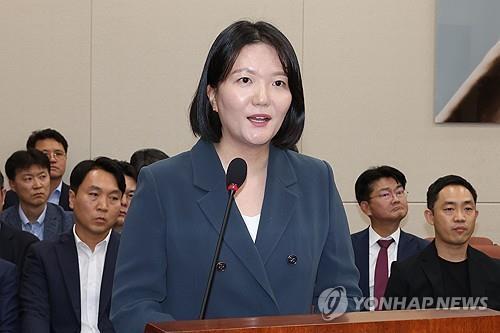- California Assembly OKs highest minimum wage in nation
- S. Korea unveils first graphic cigarette warnings
- US joins with South Korea, Japan in bid to deter North Korea
- LPGA golfer Chun In-gee finally back in action
- S. Korea won’t be top seed in final World Cup qualification round
- US men’s soccer misses 2nd straight Olympics
- US back on track in qualifying with 4-0 win over Guatemala
- High-intensity workout injuries spawn cottage industry
- CDC expands range of Zika mosquitoes into parts of Northeast
- Who knew? ‘The Walking Dead’ is helping families connect
Naver’s chief confirms no plan to reduce stake in Line operator in Japan
The chief executive of Naver Corp., South Korea’s top internet firm, said Friday the company is not considering reducing its stake in Japan’s LY Corp., the operator of the popular mobile messenger Line, despite LY’s efforts to lessen its dependence on Naver.
“We plan to maintain our current strategy,” said Naver CEO Choi Soo-yeon in an earnings call, adding that the company is not conducting a strategic review to change its status as the largest shareholder or to reduce its control over Line.
“The company management will further consider how to continue business cooperation and strengthen synergies in a way that complies with the Japanese government’s recently clarified guidelines,” she added.
Choi’s comments came about a month after she mentioned during a parliamentary session in early July that Naver had no immediate plans to sell its share in LY.
Approximately 65 percent of LY’s shares are owned by its parent company, A Holdings, in which Naver holds a 50 percent stake, while Japan’s SoftBank Group holds the other half.
The three companies have been in discussions about potentially reshaping their capital structure since Japan’s Ministry of Internal Affairs and Communications issued administrative guidance to LY earlier this year. The guidance, related to a data leak incident, urged LY to decrease its reliance on Naver.
Naver said the proportion of LY’s share in A Holdings could decrease as LY works to increase its percentage of outstanding shares to more than 35 percent to maintain its prime market listing status on the Tokyo Stock Exchange.












